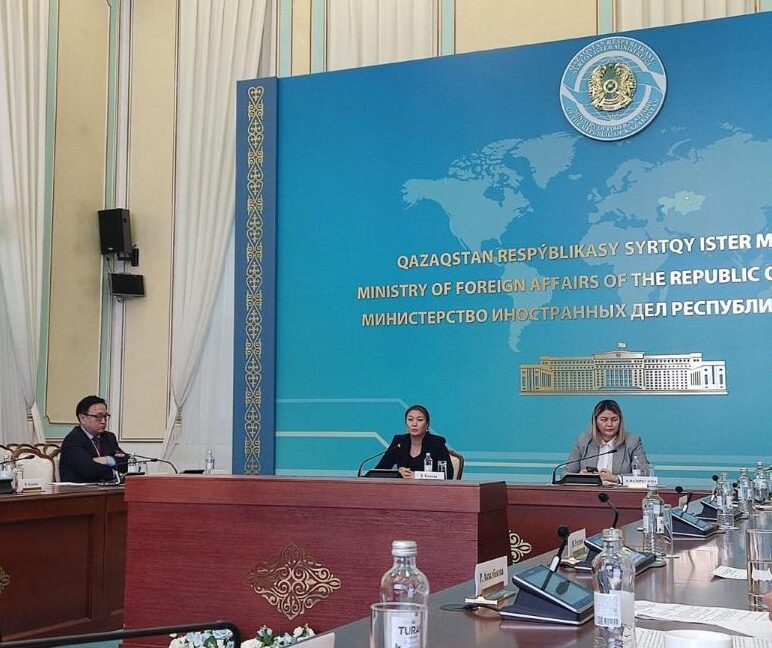ASTANA – The number of cases won by citizens and businesses from state agencies increased from 15% to 60% in two years, said Nazken Zhamaladin, the director of the Department of Legal Propaganda of the Kazakh Ministry of Justice, during the meeting of the Dialogue Platform on Human Dimension Consultative and Advisory Body (DPHD CAB) on Nov. 17 in Astana, reported the Ministry of Foreign Affairs press service.

The Kazakh Ministry of Foreign Affairs conducted the meeting of the Dialogue Platform on Human Dimension Consultative and Advisory Body (DPHD CAB). Photo credit: MFA press service.
After 2.5 years of operation, according to Zhamaladin, administrative justice has proven effective in protecting citizens’ rights from illegal actions by state agencies. The four-fold increase in cases won reflects a significant positive trend.
According to Alua Nadirkulova, ambassador-at-large of the Ministry of Foreign Affairs, the main priorities are the rule of law and the protection of constitutional rights. The constitutional referendum served as a foundation for strengthening statehood through electoral system reform, simplifying political party registration, recreating the Constitutional Court and enhancing human rights institutions, said Nadirkulova.
In 2024, Kazakhstan will submit its fourth report under the Universal Periodic Review (UPR) to the United Nations Human Rights Council, said Deputy Director of the Department of International Law of the Ministry of Justice Gulnara Kaimuldina.
Speaking about the ministry’s efforts to implement the recommendations from the 2019 national report, Kaimuldina highlighted the complete abolition of the death penalty, the cancellation of the list of jobs restricting women’s labor, the entry into force of the Optional Protocol to the Convention on the Rights of Persons with Disabilities, the signing of the Optional Protocol to the Convention on the Rights of the Child concerning the reporting procedure, and the introduction of a 30% quota for women, youth, and persons with disabilities in electoral party lists and mandate distribution.
Additionally, a three-tier model of pre-trial proceedings aimed at a clear division of powers between the investigative body, the prosecutor’s office and the court has been implemented.
During the meeting, Dinara Zakieva, the commissioner for the Rights of the Child, said that the draft law on ensuring the safety of children is awaiting the government’s opinion.
Among the efforts in protecting children’s rights, Zakieva highlighted the launch of “111 AMANAT,” the Unified State Helpline/Contact Center for Families, Women, and Children.
Additionally, progress has been made in preparing an infrastructure development plan for children with special educational needs and children in rural areas. Plans for establishing 145 family support centers and repairing 252 institutions, including boarding schools, local self-government (LSG) and camps, across 15 regions have also been approved.

